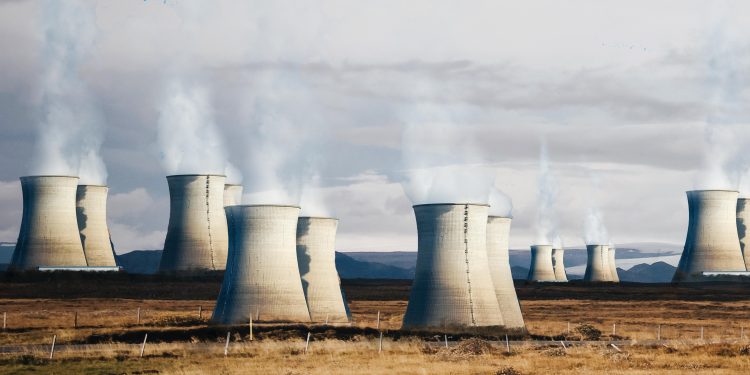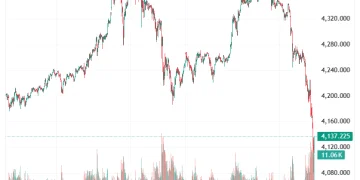Africa’s Nuclear Capacity Could Expand Tenfold by 2050 – Report
Africa’s nuclear sector is poised for significant growth, with a new International Atomic Energy Agency report projecting generating capacity could increase tenfold by 2050.
Bonface Orucho, bird story agency
Despite having just one operational nuclear plant today, a new report projects that Africa’s generating capacity could increase tenfold by 2050.
The report, ‘Outlook for Nuclear Energy in Africa’ by the International Atomic Energy Agency (IAEA), was launched at the G20 Energy Transitions meeting in South Africa held between July 30 to August 1, 2025, at the Sun City Resort in the North West Province.
The report examines how nuclear power could help address the continent’s electricity shortages, diversify its energy mix away from fossil fuels, and drive industrial growth.
According to MaryAnne Osike from the Nuclear Power and Energy Agency (NuPEA), “Nuclear is not here to replace wind, solar, or hydro, it’s here to strengthen them.”
“Its ability to provide constant, reliable baseload power means renewables can operate more effectively without being limited by weather or seasonal variations,” she shared in a call.
“When integrated into a diversified energy mix, nuclear offers long-term price stability, strengthens grid resilience, and reduces dependence on imported fuels. It’s part of the same clean energy toolbox that Africa needs to achieve both climate goals and industrial growth,” she added.
The IAEA outlook report also highlights the role of emerging technologies such as small modular reactors, outlines national programmes already underway, and stresses the need for supportive policies, regional cooperation, and innovative financing.
<script src=”https://bird.africanofilter.org/hits/counter.js” id=”bird-counter” data-counter=”https://bird.africanofilter.org/hits/story/?id=2338&slug=africa-s-nuclear-capacity-could-expand-tenfold-by-2050-report” type=”text/javascript” async=”async”></script>
According to Rafael Mariano Grossi, IAEA Director General, “Access to reliable and low-carbon energy sources such as nuclear can enable Africa to further explore and add value to its vast natural resources.”
The shift comes as African governments face the dual challenge of powering economies where more than 500 million people still lack electricity and replacing fossil fuels, which currently provide more than 70% of the continent’s power.
In the IAEA’s high-growth scenario, nuclear capacity in Africa could more than triple by 2030 and expand tenfold by 2050, requiring more than US$100 billion in investment.
Even in the low-growth case, output would double by 2030 and increase fivefold by mid-century.
For now, South Africa remains the only African country generating nuclear power. Its two-unit Koeberg Nuclear Power Station supplies nearly two gigawatts to the grid, and in 2024, Unit 1 received a 20-year life extension.
But several other countries are moving from planning to implementation. Egypt is building the 4.8-gigawatt El Dabaa Nuclear Power Plant, with its first unit expected online by 2028.
Ghana, Rwanda, Kenya, Namibia and Nigeria have made firm decisions to adopt nuclear technology and are working with the IAEA to prepare infrastructure, establish regulatory bodies, and develop human capital.
Kenya set up its Nuclear Energy Programme Implementing Organisation in 2012, has since established an independent regulator, and is targeting 2038 for its first reactor, with SMRs under review to match demand patterns.
Ghana’s Nuclear Power Ghana is in vendor talks for both a large nuclear plant and SMRs, while Nigeria has opened bids for a 4,000-megawatt facility and signed agreements with multiple suppliers.
A large part of this momentum is driven by growing interest in small modular reactors (SMRs), which offer flexible power generation in smaller increments than traditional gigawatt-scale plants.
“Global interest in SMRs is increasing due to their ability to meet the need for flexible power generation for a wider range of users and applications,” according to Zizamele Mbambo, South Africa’s Deputy Director General for Nuclear Energy.
SMRs are well suited to Africa’s small or fragmented grids, require less upfront capital, and can be deployed more quickly. They also offer off-grid potential for industrial projects such as mining and desalination.
The IAEA outlook notes that SMRs could even be integrated into existing coal power sites, reusing infrastructure while cutting emissions, a theme it plans to explore in a forthcoming coal-to-nuclear transition report for the G20.
Africa already holds a significant advantage, being home to 14% of the world’s uranium production.
Namibia ranks as the world’s third-largest producer, while Niger and South Africa are also in the top ten.
In Namibia, the previously idled Langer Heinrich mine has been reopened, with production expected to resume in 2026, and new projects are due by 2028.
Tanzania has confirmed large reserves, such as the US$1.2 billion Mkuju River plant in jointly with Russia, is on course for pilot production. This resource base could bolster both export earnings and domestic energy security if countries invest in fuel cycle capabilities to convert raw uranium into reactor-ready fuel.
However, according to experts like Osike, the pace at which Africa’s nuclear ambitions materialise will hinge on financing, given the sector’s high upfront costs and decades-long project lifecycles.
“Nuclear projects demand substantial upfront investment and a commitment that spans decades… Without innovative financing models and strong partnerships, many African countries will struggle to move from ambition to reality.”
In June 2025, the IAEA and the World Bank signed an agreement, the Bank’s first formal engagement with nuclear energy in decades.
This opens the door for World Bank support in extending reactor lifespans, upgrading grids, and accelerating SMR deployment, while signalling to other multilateral lenders, including the African Development Bank, that nuclear is part of the clean energy transition toolkit.
Vendor financing is also in play. Egypt’s El Dabaa project, for example, is backed by large concessional loans from Russia with low interest rates and extended repayment terms.
However, many African nations face low credit ratings and high debt-to-GDP ratios, so new financing models, from regional SMR purchase agreements to blended public-private investment, will be key.
“Developing a nuclear programme requires a century-long commitment, from construction through decommissioning and waste management,” Osike shared.
“Stable national policy, public support, and regulatory readiness are therefore essential,” she added.
The IAEA’s Milestones Approach identifies 19 infrastructure issues that must be addressed before construction begins.
Continental and regional integration could further accelerate nuclear rollout.
The Africa Single Electricity Market, launched by the African Union, aims to link national grids into the world’s largest single electricity market.
This could allow countries to share nuclear output, stabilise grids, and make large-scale investments viable. Shared infrastructure, training, and regulatory capacity could mirror the cooperative models already used in hydropower projects.
bird story agency








